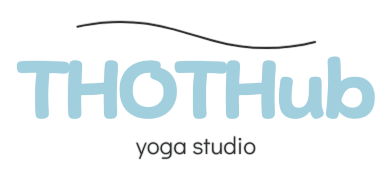Which Breathing Exercise is Best for Calming Anxiety Fast?

When anxiety strikes, your breathing often becomes shallow and quick. This makes your heart race and your mind panic even more. The good news is that simple breathing exercises can help you feel calm within minutes. Let’s explore the most effective techniques that work fast.
How Breathing Affects Anxiety
Your breathing and anxiety are closely connected. When you’re anxious, your body goes into “fight or flight” mode. This makes you breathe faster, which sends more stress signals to your brain.
What happens during anxiety:
- Breathing becomes shallow and rapid
- Heart rate increases
- Muscles tense up
- Mind races with worried thoughts
How proper breathing helps:
- Activates your body’s calm response
- Slows down your heart rate
- Relaxes tense muscles
- Clears your mind
Best Breathing Exercises for Quick Anxiety Relief
4-7-8 Breathing (The Fastest Method)
This technique works within 1-2 minutes and is often referred to as a “natural tranquilizer.”
How to do it:
- Breathe out completely through your mouth
- Keep your lips closed and slowly inhale through your nose, counting to four.
- Hold your breath for seven counts
- Breathe out through your mouth for eight counts
- Repeat 3-4 times
Why does it work so fast?
- Forces you to focus on counting instead of worrying
- Slows your heart rate quickly
- Increases oxygen in your blood
Best for: Panic attacks, before sleep, or when you need instant calm
Box Breathing (Most Reliable)
Also known as “square breathing,” this method is employed by Navy SEALs and first responders.
Simple steps:
- Breathe in for four counts
- Hold for four counts
- Breathe out for four counts
- Hold empty for four counts
- Repeat 5-10 times
Practical tip: Picture drawing a box as you breathe. Start at the bottom left, go up (inhale), across (hold), down (exhale), and back (hold).
Best for: General anxiety, work stress, before important meetings
Belly Breathing (Best for Beginners)
This is the easiest method to learn and remember.
Step-by-step guide:
- Place one hand over your chest and the other on your stomach.
- Breathe in slowly through your nose
- Make sure your belly hand moves more than your chest hand
- Breathe out slowly through your mouth
- Continue for 5-10 breaths
Common mistake to avoid: Don’t force it. Let your breathing be natural and gentle.
Ideal for: everyday practice, kids, and beginners in breathing exercises.
Which Exercise to Choose
| Exercise | Time to Work | Difficulty | Best Situation |
|---|---|---|---|
| 4-7-8 Breathing | 1-2 minutes | Medium | Panic attacks, sleep issues |
| Box Breathing | 2-3 minutes | Easy | Work stress, general anxiety |
| Belly Breathing | 3-5 minutes | Very Easy | Daily practice, beginners |
Tips to Make Breathing Exercises Work Better
When and Where to Practice
Best times:
- First thing in the morning
- Before stressful events
- When you first notice anxiety
- Before bed
Good locations:
- Quiet room at home
- Your car (when parked)
- Office bathroom for privacy
- Outside in the fresh air
Common Mistakes That Reduce Effectiveness
Don’t do these:
- Breathing too forcefully
- Holding your breath too long if it feels uncomfortable
- Expecting instant perfection
- Giving up after one try
Do this instead:
- Start with shorter counts and build up
- Practice when you’re calm first
- Be patient with yourself
- Try different exercises to find your favorite
What the Research Says
Studies show that controlled breathing exercises can reduce anxiety symptoms by up to 60% within just a few minutes. The American Psychological Association notes that deep breathing is one of the fastest ways to activate your body’s relaxation response.
Research from Harvard Medical School found that people who practice breathing exercises daily have 25% less anxiety overall.
When to Seek Additional Help
Breathing exercises work well for mild to moderate anxiety. However, see a healthcare provider if you have:
- Panic attacks several times per week
- Anxiety that interferes with daily life
- Physical symptoms like chest pain during anxiety
- Thoughts of self-harm
Quick Reference Guide
For immediate relief: Use 4-7-8 breathing. For daily practice: Try belly breathing.
For high-stress situations: Use box breathing. For sleep anxiety, 4-7-8 works best
Keep in mind, these exercises work best when practiced consistently. Even 5 minutes daily can make a big difference in how you handle stress and anxiety.
The key is to start practicing when you’re calm, so these techniques become natural when anxiety strikes. Pick one exercise that feels comfortable and stick with it for at least a week before trying others.
Note: This information is for educational purposes. Always consult healthcare professionals for persistent anxiety or panic disorders.
